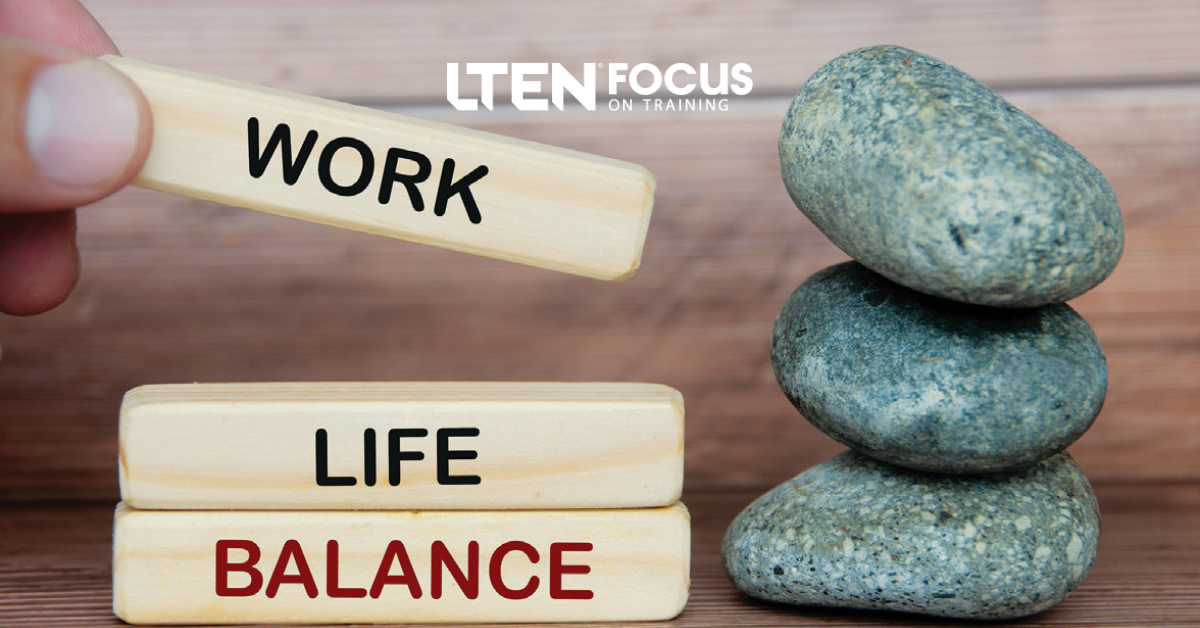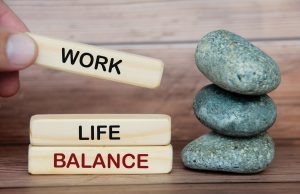
Generations @Work – By Jeanne Farley
It’s critical that we understand our learners
 Do you remember using a Commodore 64 or the original Macintosh? Perhaps you grew up with an Atari and had a clunky Texas Instruments calculator for school. Did you use floppy disks, hard disks, readable/writable CDs or USBs? Or maybe you only know the “cloud”?
Do you remember using a Commodore 64 or the original Macintosh? Perhaps you grew up with an Atari and had a clunky Texas Instruments calculator for school. Did you use floppy disks, hard disks, readable/writable CDs or USBs? Or maybe you only know the “cloud”?
Did you grow up listening to albums, shuffling CDs, downloading music (Napster anyone?) or did you only ever stream your music? Write letters or connect on “social”? Shopping malls vs. online shopping? Cable TV or streaming services? Library vs. the almighty Google? Physical book, online book or audible book?
This list could go on and on. Depending on what you answered, you are likely associated with one of several generations that now coexist in the workplace.
Each generation grows up with different experiences. It’s not a competition of who did what better; it’s an opportunity to understand how these experiences form our perception. That, in turn, shapes how we regard, understand and interpret what we encounter.
As professionals in the learning & development (L&D) space, it is critical that we consider the generational differences to create powerful and impactful learning that addresses everyone. So what are the generations? According to Pew Research, they break down like this:
- Baby Boomers — born 1946 to 1964 (ages 59-77)
- Generation X — born 1965 to 1980 (ages 43-58)
- Millennials — born 1981 to 1996 (ages 27-42)
- Generation Z — born 1997 to 2012 (ages 11-26)
Who’s Who in Our Zoo?
So we are employing those who fall into Generation Z and they’re coming in greater numbers soon. Likewise, a small percentage of employees stay beyond the traditional retirement age into their 70s.
In the L&D space, we have been considering and working with Generation X and the baby boomers for some time now. Because we have mastered these generations (insert snarky Generation X chuckle here – and yes, I am Generation X for those playing along at home), we must now forge beyond our familiar stomping ground.
If you haven’t done so already, it’s an interesting exercise to ask your business partners in human resources to pull generational data. In terms of the audience you serve, what is the generational split among the four generations in the workforce? Which generations have you been hiring lately? What do we know about millennials and Generation Z, and how should that impact our approach?
The Tech Connection
Beginning with the obvious, there’s the technology consideration. Baby boomers and Generation X were born BC – Before Computers. Millennials and Generation Z do not know what life was like BC. Computers hit the mainstream in the early’80s. Cell phones became popular in the ’90s. Our best friend, Google, became popular early in the 2000s, as did online chatting, texting, FaceTime and social media. These learners are quite literally hard-wired to technology with smartphone in hand most all the time.
A significant technological difference to note regarding these two generations is that millennials experienced the massive upgrades that took place in digital technology from late 20th century through the early 21st century. Generation Z was born into a sophisticated digital landscape, hence the term “digital native”. Millennials experienced bumps and potholes in technology that Generation Z isn’t even aware of as their digital road is nicely paved with many upgrades.
Technology, Tools and Retention
In our corporate world, Generation Z will expect more technologically right out of the gate than perhaps a millennial. Introducing a new tool to the field? Considering what upgrades to make to onboarding? For Generation Z, not only does a tool need to be useful and improve something, but it must also work seamlessly.
There will be no tolerance for technology that doesn’t work. They tend to be fast decision-makers. If your company has too many tools that aren’t working or generally lags in technology, you will not retain Generation Z. They will move on toa company that offers more sophisticated tools.
Millennials will allow you a bit of leeway as they experienced a decade-or-more-long on-ramp to where technology is today. Millennials may be more vocal in identifying where the gaps are, suggesting improvements, but they will expect the “next version” to be better. If version 2.0, 3.0 and so on aren’t better, you risk not retaining the millennial or at the very least not engaging them with future tools.
Technology is just one piece, albeit a large piece, so let’s consider other aspects of each of these two generations as they relate to the workplace, learning and development.
Considering Millennials
The millennial generation has often received a bad rep. Some negative biases portray the millennial as lazy, selfish and unmotivated. Without labeling one generation better than another, it is important to understand the experiences millennials encountered growing up.
During their youth, several noteworthy events took place including the rise of terrorism (9/11), school shootings, increased awareness of child abductions and economic recession to name a few. Feeling the pressure of this turmoil, many parents became “helicopter parents” – increasingly protective and forming close and open relationships with their children, often reinforcing how special they are to bolster their sense of self-worth.
Parents often over-scheduled their children from playdates to enrolling them in as many extracurricular activities as possible, because it was taboo to leave your child home alone. Growing up in this environment, millennials have quite a different vision of employment than generations before them.
- Work/Life Balance – Maintaining a work/life balance is critical. Therefore, a convenient and flexible learning path is essential (hybrid learning). Millennials may be concerned about joining an organization with a training program that takes them away from their family for extended periods of time.
- Organizational Fit – Instead of asking themselves how they will fit into an organization, they consider how that organization fits their needs.
- Relationships – They strive to hold close relationships with peers and authority figures, seeking connectedness and thriving on teamwork. If you area training manager, it is likely a millennial will see you as their peer as they do not hold regard for traditional hierarchical labels.
- Interactive Learning – A millennial enjoys collaborative learning opportunities with group discussions, and because they are technologically savvy, they will expect experiences that incorporate varied mediums/multimedia.
- Multi-Taskers – Millennials are notorious multi-taskers. This may require “quiet” or technology free activities to prevent excessive multitasking during learning.
- Doing Versus Knowing – Have you heard your millennial reps say, “I just want to get out there and do it.”? This is because their mindset is doing over knowing. They want to be immediately active! This may require us to consider our curriculum carefully. Are we giving them too much time, or can we scale back to what they really need to know to execute in their role and reduce or eliminate any fluff?
- Feedback – Millennials expect immediate feedback that includes practical ways to improve. Instructors, therefore, will need to incorporate scorecards and develop criteria for assessment that include observable behavior to provide actionable feedback.
- Rewards – Millennials also love being rewarded. Increased recognition in your training will ensure they stay engaged and looking for the next reward. Keep this in mind when delivering feedback as well. A healthy balance of positive and “things to work on” is necessary if you do not wish to shut a millennial down.
- Be Explicit – A millennial seeks explicit information and time to digest said information. They dislike ambiguity. Have you ever been taken to task by amillennial about how a question or task was worded (because they got it or did it wrong)? It’s not pretty! As such, clear expectations are necessary. Check for understanding.
- Frank Conversations – For those early in their professional career, you may need to clearly articulate what is considered “professional” in your working environment. This may include providing behavioral or attire requirements or how to professionally contest a question in a classroom environment.
Because millennials value connectedness, perhaps it is time to visit, revisit or enhance the idea of a mentor or field trainer program for your organization. Forming an immediate bond with another peer or mentor can assist a millennial in feeling more comfortable.
A robust (mentor) relationship allows for feedback, encourages self-reflection and development of independent decision-making. This open and safe communication is a fantastic foundation for developing a new hire.
Considering Generation Z
If we are being honest with ourselves, Generation Z knows more about technology than previous generations. Need to figure out why you can’t cast from your cellphone to a TV, call a Generation Zer to help.
They have a novel way of managing tasks and can sometimes feel frustrated by outdated ways. Some studies even suggest that Generation Z brains have evolved in such a way that they focus more on sophisticated and complex imagery (think about how realistic video gaming has become).
This generation also experienced “helicopter parents” and as such are seen by some as “soft” and too coddled. Perhaps a positive that emerges from this is that Generation Z cares deeply about others. They seek and embrace diversity, value authenticity and take a practical approach to solving issues.
While many of the issues they face are “inherited” (global warming, racism, inflation, etc.), they attempt to be innovative yet pragmatic. They are innovative in terms of their own income. Instead of taking part-time, afterschool jobs, like many did in generations before, they learned ways to create passive income via the internet such as becoming influencers, selling products online and placing product ads on social media.
They don’t feel the need to do things the way they were done before and appreciate creating a unique path.
- Interactivity – Generation Z responds well to interactive games, challenges and collaborative projects. Group projects will be welcomed.
- Lectures Bring Bad Mojo – They highly dislike lectures and discussions (auditory learning). Their brains are working far too fast to sit and listen. If you must provide “lecture,” be certain to interject plenty of activities to keep Generation Z engaged.
- We Don’t Need No Stinking Paper – The first time I had a class of students with open laptops in front of me, I didn’t understand what was happening. I thought it was some blatant multitasking or disrespect until I realized they were taking notes. Generation Z relies on PC note-taking instead of taking notes on paper. This is important to consider if you are still creating elaborate workbooks for students. If you have multiple generations in your training, consider offering options – a workbook or digital version.
- Online Question Format – A Zer prefers asking questions via an online format (not in person) and expects instant information and communication. Do you have a mechanism to capture questions from students as they navigate onboarding or the assigned curriculum? For example, it could be as simple as setting up a cohort team in your Teams application and allowing for questions to be asked there.
- Entertain Me – Though not even born yet in 1991 when Nirvana’s Kurt Cobain bellowed “Entertain us” in the Smells Like Teen Spirit, this generation is the “e-generation” – entertain me generation. They will “show up” (mentally and physically) if you entertain. No pun intended; you will need to ramp up your game.
- Virtual World – If you were born in the ’80s, you knew about the “material world” (thanks to Madonna) but for Generation Z it is all about the virtual world. They rely on the use of technology to learn and expect you to interact with them in the virtual world. Consider assignments that let them do what they do best – use technology to discover, create, display and present.
- Openly Ambitious – Don’t be shocked if you asked about promotions in the workplace during their interview Generation Zers are driven and are looking for the next step. As educators, it will be important to challenge this group and to identify clear pathways for advancement. The partnership between L&D and HR must grow exponentially to address this need.
- Avoids the Hustle Culture – While it almost seems like an oxymoron to be highly ambitious but avoid the hustle, Generation Z rejects the hustle culture. TikTok trends “the soft life,” which, like millennials, places strong emphasis on work/life balance. With strong boundaries being set regarding use of their time, how, as educators, can we be more prescriptive and concise to help Generation Z excel and meet their professional goals for advancement? Will guided learning journeys need to take on additional scrutiny to ensure shorter time to completion, enabling skills that can be activated in new and more progressive roles and greater flexibility? This is a difficult challenge.
- Playing Games – They’re gamers! Considering innovative technology? Think about what they are growing up with at their fingertips – artificial and virtual reality, artificial intelligence and all the abbreviations relating to technology. What are you investing in that will attract the “gamer”? Do you have a few Gen Z representatives on your steering committee or advisory board to vet technology? Are you giving them an open forum to recommend new technology?
- Anxious – Sadly, a recent report suggests that approximately three in 10 Gen Zers experience anxiety. About one-fifth of those in the same survey attributed their anxiety to social media. Like millennials, it may be critical to help manage “technology time” by creating activities and specified time without technology. Be prudent with this though: Studies also suggest anxiety rises when technology is taken away.
Generation Z is incredibly involved with social media. What level of consideration has your organization given to use of social media to communicate internally? Have you explored using TikTok, Instagram or chatting sites like WhatsApp to generate communication and activity with your training cohorts?
As social media continues to increase as a mechanism for social interaction and networking, how can we integrate this technology into our learning strategy?
Conclusion
Understanding is what promotes our ability to create impactful learning for our stakeholders. While each generation has both negative and positive biases, our role is not to argue which is better. We need to understand each generation and how we can create a learning experience that complements, challenges and engages them.
As generations evolve, to stay relevant, we must too.
 Jeanne Farley is senior manager, global sales skills and methodology training, for Quidel Ortho and a member of the LTEN Editorial Advisory Board. Email her at Jeanne.Farley@QuidelOrtho.com or connect via LinkedIn at www.linkedin.com/in/aboutjeannefarley.
Jeanne Farley is senior manager, global sales skills and methodology training, for Quidel Ortho and a member of the LTEN Editorial Advisory Board. Email her at Jeanne.Farley@QuidelOrtho.com or connect via LinkedIn at www.linkedin.com/in/aboutjeannefarley.









